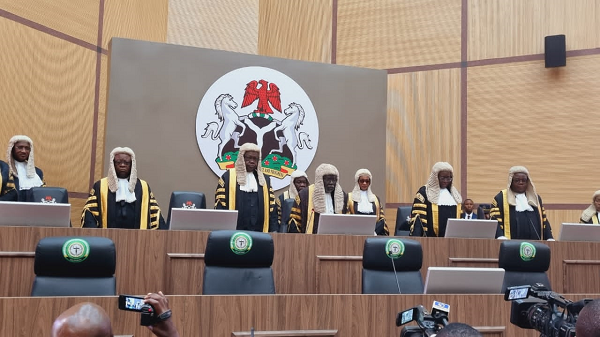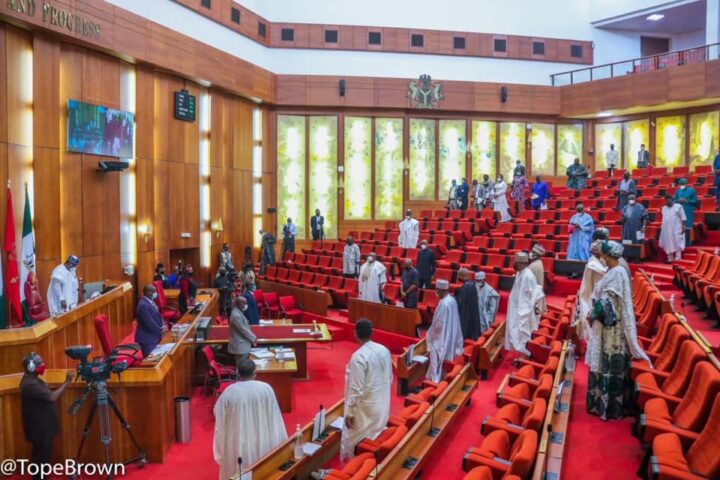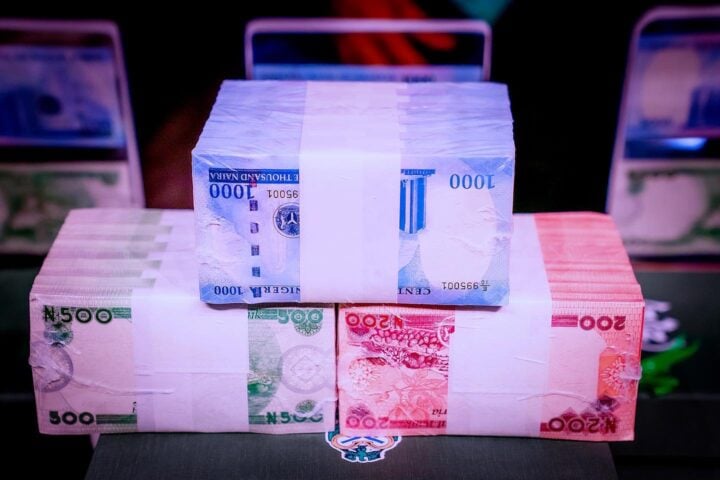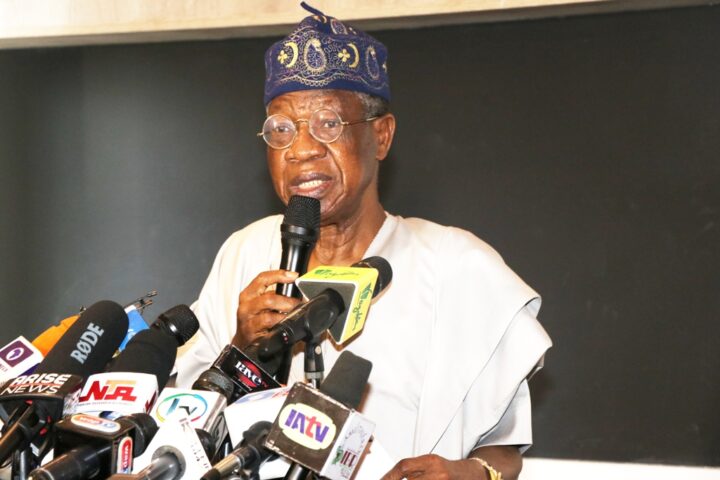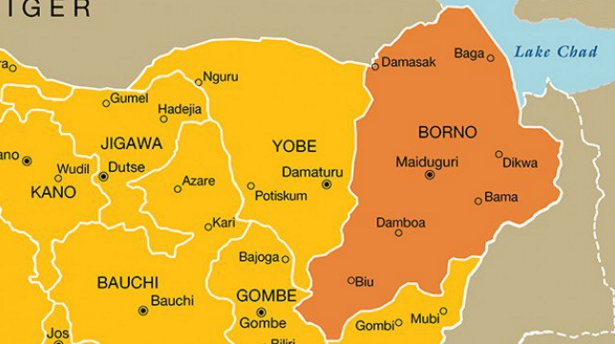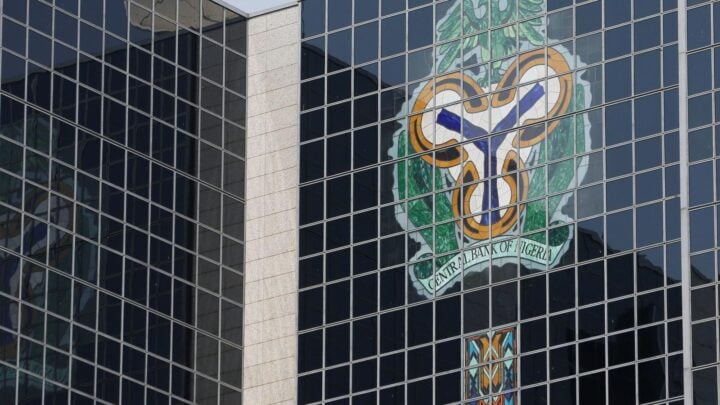Several significant, landmark and epoch judgments were issued by various courts across the country in the course of the year.
From judgments on contempt of court by high-profile persons to rulings on many cases of national importance, the year 2022 was eventful for the judiciary.
Here are the standout judgments.
INEC vs POLITICAL PARTIES
Advertisement
In March, the supreme court upheld the de-registration of 22 political parties by the Independent National Electoral Commission (INEC).
INEC had de-registered some parties in February 2020 for “failing to meet the criteria provided for by section 225(a) of the 1999 constitution (as amended)”.
Some of the parties jointly filed a suit marked FHC/ABJ/CS/444/2019, asking the court to determine whether INEC has the constitutional power to deregister them.
Advertisement
On June 11, Anwuli Chikere, judge of a federal high court in Abuja, agreed with INEC and dismissed the suit on the grounds that the plaintiffs failed to prove their case.
The high court’s verdict was later overturned by the court of appeal.
However, the apex court reinstated the verdict of the trial court.
COURT SACKS UMAHI AS GOVERNOR
Advertisement
David Umahi’s sack from office as governor of Ebonyi state is one Nigerians least expected.
Inyang Ekwo, judge of an Abuja federal high court, on March 8, ordered the removal of Umahi and Eric Kelechi Igwe, as governor and deputy governor of Ebonyi state, following their defection from the Peoples Democratic Party (PDP) to the All Progressives Congress (APC).
Umahi left the PDP in November 2020, attributing the action to the “injustice” done to the south-east.
Consequently, the PDP instituted a suit against the governor, his deputy, the APC and INEC.
Advertisement
In the judgment, the judge held that the 393,042 votes polled by Umahi in the March 9, 2019 governorship election belonged to the PDP and cannot be legally transferred to the APC.
The judgement was, however, annulled by the court of appeal in October.
Advertisement
AMAECHI vs RIVERS STATE
On May 27, the supreme court dismissed an appeal by Rotimi Amaechi, former minister of transportation, seeking to stop a probe into an alleged N96bn fraud.
Advertisement
Nyesom Wike, Rivers state governor, had set up a seven-man panel to probe Amaechi over the alleged withdrawal of N96 billion from the state’s treasury during his tenure as governor.
Amaechi had prayed the apex court to prohibit Wike from investigating his eight-year tenure as governor.
Advertisement
The former governor predicated his opposition to the probe on the ground that it was aimed at witch-hunting, embarrassing, and humiliating him in view of his political differences with his successor.
Delivering judgment, a seven-member apex court panel dismissed the appeal on the grounds that it lacks merit as Amaechi is neither on trial nor indicted for the alleged offence.
Although Rivers state had preferred criminal charges against Amaechi after the supreme court verdict, the suit was withdrawn in October.
HIJAB IN SCHOOLS
In October 2014, a Lagos high court ruled against the wearing of hijab in schools, a decision that was overturned by an appellate court in July 2016.
However, in a judgment on June 17, five out of a seven-member panel of the apex court held that banning the use of hijab in Lagos schools is discriminatory.
The verdict of the supreme court is one of the most controversial judgments delivered in 2022 as it sparked heated conversations across the country.
Notably, Malcolm Omirhobo, a Lagos-based human rights lawyer, appeared before the supreme court and a Lagos high court dressed as a traditionalist.
PETER NWAOBOSHI CONVICTED OF FRAUD
On July 1, an appeal court sitting in Lagos sentenced Peter Nwaoboshi, senator representing Delta north, to seven years imprisonment for N322 million fraud and money laundering.
The court also ordered that two of the senator’s firms be wound up.
The Economic and Financial Crimes Commission (EFCC) had arraigned Nwaoboshi and his two firms – Golden Touch Construction Project Ltd and Suiming Electrical Ltd — in 2018.
In June 2021, he was discharged and acquitted of the charges barely 24 hours after President Muhammadu Buhari welcomed him to the APC.
However, the EFCC appealed the verdict of the high court.
The senator has since taken steps to contest the court of appeal’s judgment before the apex court.
BAWA SENTENCED TO PRISON
On November 8, a federal capital territory (FCT) high court in Maitama ordered the remand of Abdulrasheed Bawa, chairman of the Economic and Financial Crimes Commission (EFCC), for contempt.
Chizoba Oji, the presiding judge, ordered the inspector-general of police (IGP) to ensure the committal order is executed.
The judge gave the order in the motion on notice marked FCT/HC/M/52/2021 and filed by Adeniyi Ojuawo, air vice-marshal (now retired), against the federal government.
The judge held that Bawa was in contempt of the order of the court after the commission failed to return a Range Rover and the sum of N40 million to Ojuawo.
However, the order was set aside on November 11 after the EFCC chairman filed an application against his committal.
IGP SENTENCED TO PRISON
In the series of sentencing for contempt, even the inspector-general of police was not spared.
On November 29, a federal high court in Abuja sentenced IGP Usman Baba to three months in prison for disobeying a court order.
Mobolaji Olajuwon, the presiding judge, issued the ruling following a suit filed by Patrick Okoli, a former police officer who claims he was unlawfully and compulsorily retired from the Nigerian police force in 1992.
In 1994, a high court in Bauchi quashed the forceful retirement and ordered the office of the IGP to reinstate Okoli and pay all his entitlements.
Another order was made by the Abuja high court in 2011 for the enforcement of the 1994 judgment.
The failure of the office of the IGP to comply with the court order necessitated the aggrieved person (Okoli) to commence a committal proceeding against the respondent which turned out in his favour.
Baba has, however, filed a motion seeking an order to set aside the contempt proceedings and committal order on the grounds that he had not been appointed into office as IGP when the case was instituted.
ARMY CHIEF SENTENCED TO PRISON
Faruk Yahaya, chief of army staff (COAS), was the third high-profile person to be sentenced to prison for contempt within one month.
A high court sitting in Minna, Niger state, issued a warrant of arrest for the army chief as well as Olugbenga Olabanji, commandant of the training and doctrine command, Minna, over the same offence.
The order was issued in respect of a suit marked NSHC/225/2019.
The suit is between Adamu Makama and 42 others versus the executive governor of Niger state and seven others.
APPEAL COURT FREES NNAMDI KANU
The terrorism charge preferred against Nnamdi Kanu, leader of the Indigenous People of Biafra (IPOB) was quashed by the court of appeal on October 13.
Kanu, through his senior lawyer, Mike Ozekhome, had challenged his trial on the grounds that he was forcefully abducted from Kenya and illegally brought back to the country.
Delivering judgment, a three-member panel of the court of appeal held that Kanu’s extradition from Kenya to Nigeria to stand trial was illegal.
The court further held that having illegally and forcefully renditioned the appellant, the trial court is stripped of jurisdiction to continue to try Kanu.
The federal government has appealed the judgment of the court of appeal and the IPOB leader is still in detention.
YPP GOVERNORSHIP CANDIDATE CONVICTED FOR FRAUD
A federal high court in Akwa Ibom state sentenced Bassey Albert, governorship candidate of the Young Progressives Party (YPP), to 42 years in prison for fraud.
The Economic and Financial Crimes Commission (EFCC) had, in 2019, arraigned Albert on a six-count charge of allegedly taking possession of six vehicles worth N204 million when he was finance commissioner in the state.
He was said to have collected one of the vehicles from Jide Omokore, an associate of Diezani Alison Madueke, former minister of petroleum.
Although the senator has started serving his jail term, the campaign for his governorship bid is still ongoing.
DOYIN OKUPE’S CONVICTION
Just when one least expected a year-ending surprise, an Abuja federal high convicted Doyin Okupe, director-general of the Peter Obi presidential campaign, for breaching the money laundering act.
Ijeoma Ojukwu, the presiding judge, sentenced Okupe to two years imprisonment after he was found guilty of 26 out of a 59-count charge preferred against him by the Economic and Financial Crimes Commission (EFCC).
He was, however, given the option to pay an N500,000 fine on each of the counts — totalling N13 million.
Okupe paid the fine shortly after the sentencing.
Add a comment
